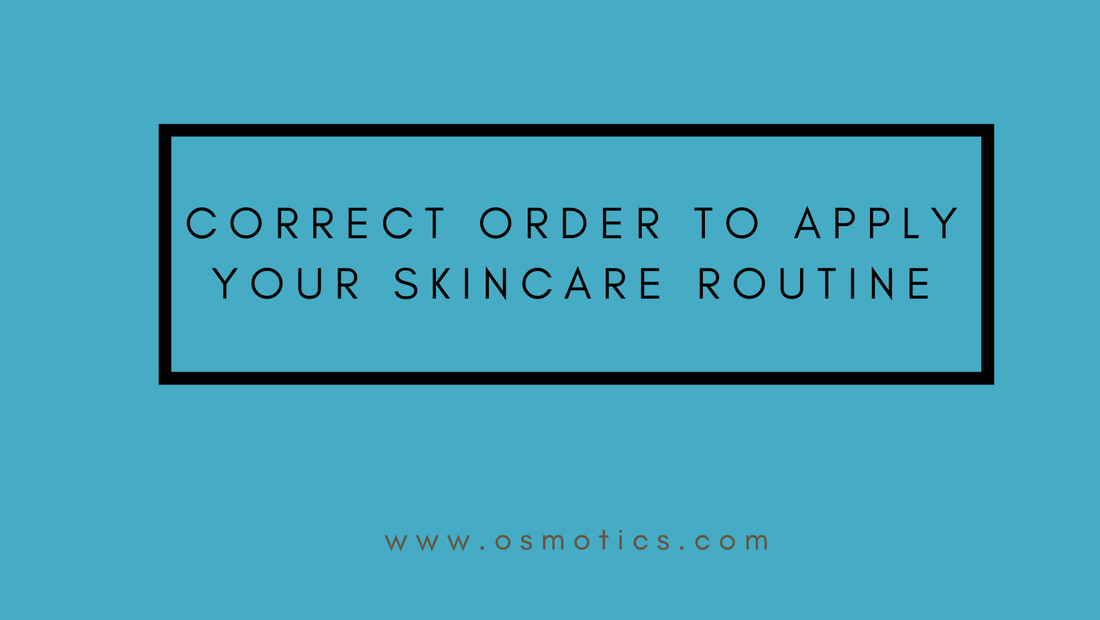
10 Skin care habits that can worsen acne
Share
Acne is among the most common skin disorders, affecting people of all ages and genders. Many people get acne for the very first time during puberty, but for most of us, flare-ups remain throughout adulthood. A poorly timed breakthrough can undermine your confidence, especially if it appears out of nowhere. This is because anything that pushes your body out of equilibrium can affect your skin. Hormone fluctuations, stress, food, and a lack of sleep are just a few of the elements that contribute to clear skin. Choose Osmotics skincare products that promote healthy and radiant skin.Even though many aspects of our daily lives appear to be beyond our control, one factor you have a complete influence on is your skincare routine. While some strategies may be more valuable, treating your acne holistically can help you attain the clear skin you desire. Continue reading to learn about skincare practices that may be exacerbating your acne. You will also learn about alternative, more productive skincare behaviours that you may start adopting into your regular self-care routine.
1. You wash several times per day.
This is certainly counterintuitive. Scrubbing throughout the day may seem beneficial if you suffer from severe acne or have oily skin, but excessive washing can irritate skin and provoke acne flare-ups. According to the American Academy of Dermatology, a gentle wash twice daily is optimal for cleaning pores without scratching the skin. If you have dry skin, you may want to wash it only once daily; consult your dermatologist. To prevent the harshness of washcloths or loofahs, use your bare hands.
2. Makeup, makeup brushes, and makeup applicators shouldn’t be shared.
Even if you solely use non-comedogenic makeup, sharing it can cause pimples. Although acne is not contagious, when you share makeup, makeup brushes, or applicators, acne-causing bacteria, oil, and dead skin cells from other people's skin can end up in your makeup. These might clog your pores and cause outbreaks. By wearing that cosmetic, you can transfer bacteria, oil, and dead skin cells to your skin. Make sure you are the sole user of your makeup, makeup brushes, and makeup applicators.
3. You consume an excessive amount of sweets and starchy foods.
"Mom may have been on to something when she urged you to stay away from those food items."No meal has been proven to cause acne. However, acne may be associated with sugary, processed foods such as white pasta, potato chips, white bread, cookies, and cakes. There is no disadvantage to restricting sugary meals.Some research has connected dairy products to acne, although this is not proven.
4. Picking at your skin and popping zits
While it may be tempting to pick or pop pimples, doing so can result in additional redness from pushing the pus deeper into the skin, as well as scarring. Instead, keep your hands away from your face and let pimples shrink with the help of an anti-acne lotion or cream.
5. Every other week, you try a different treatment
Don't switch to a new cleanser if your new cleanser doesn't make a difference after a week. A new acne treatment may take six to eight weeks to show results, so playing the field with your skin-care products will prevent them from working. Acne outbreaks can be reduced with consistency.
6. Sleeping with Makeup
After a long night out, you may want nothing more than to snuggle into bed and sleep. On the other hand, sleeping in your makeup is one of the worst things you can do for your skin. Sleeping through the night allows your mind and body to rest and rejuvenate and gives your skin a well-deserved respite.If you wear makeup from morning to night, cleaning your skin before bed removes pollutants and unclogs your pores, allowing them to breathe and minimizing the likelihood of developing new acne in the morning. Remember to include this step in your everyday skincare routine.
7. Too much Face Scrubbing
It's tempting to scrub hard, use brushes, or textured cloths to achieve the cleanest skin and eliminate debris from pores. However, damaging the top layer of the skin might result in increased oil production in response to irritation, exacerbating acne. Apply acne cleanser on your hands first, then gently rub your face in small, circular motions with your fingertips.
8. Your skin will become dry.
Because acne-prone skin is oily, applying astringents and acne treatments can be tempting until your face feels dry. Don't. Irritated skin is dry skin. You risk developing more acne whenever you irritate your skin.Instead, use acne remedies precisely as indicated. Apply a moisturizer designed for acne-prone skin if your skin feels dry. It would be best if you used the moisturizer twice a day after washing your face.Astringents, rubbing alcohol, and other products that might dry your skin should also be avoided.
9. You quit too soon
"Everyone wants flawless skin right away, but there is no silver bullet that works instantly; acne treatments take weeks to kick in." If over-the-counter acne treatments do not work after 2 to 4 weeks, you may need to consult a dermatologist. This is especially critical if you have acne cysts or scars from your acne.
10. Leaving out the shampoo
If you have oily hair, it might flow into your face and cause pimples. Wash your hair every day to keep extra oil off your forehead, face, and back, which will help prevent acne.
Conclusion
Your lifestyle choices might have a significant impact on your acne problem. While some behaviours might aggravate the disease, living a healthy lifestyle and practicing good skincare practices can help you control your acne breakouts and limit your trips to the dermatologist. However, if your acne problems persist, get assistance from your physician.
